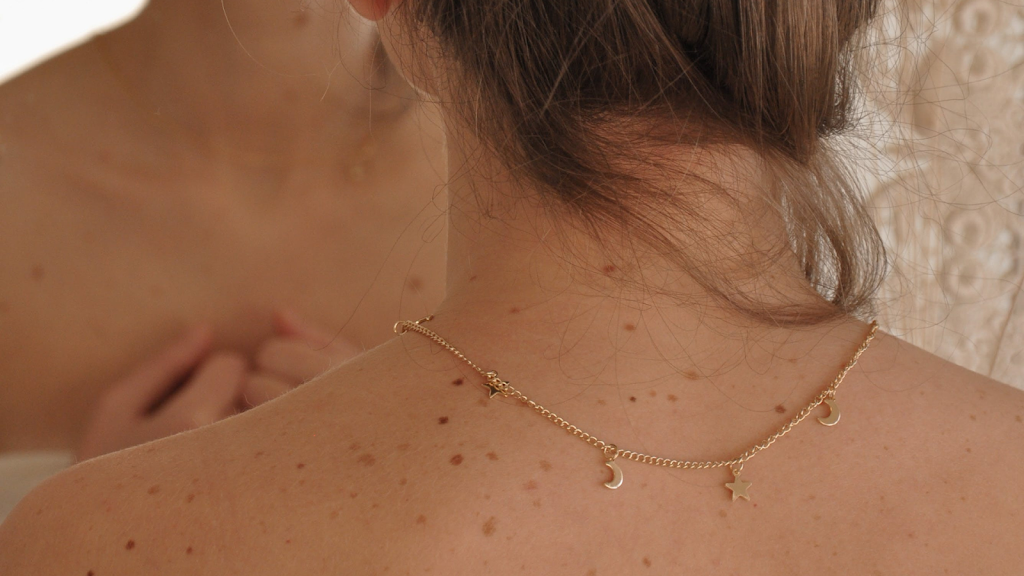Maintaining skin hydration during the winter is particularly important due to the specific challenges of cold and dry climates. Winter weather tends to strip away the skin’s natural fluids, which leads to greater dryness, flakiness, and possible irritation. Proper hydration helps to keep the skin’s protective barrier intact and holds it from being compromised and vulnerable to external forces. A well-hydrated skin can resist damage, less prone to cracking. wrinkles, and looks healthier.
Use Alcohol-Free Skincare Products
First and foremost, avoid skincare products that include alcohol, as they can dry the skin. Choose alcohol-free skincare products. Of course, all alcohol is not harmful to the skin. Some good alcohols are Cetyl Alcohol, Stearyl Alcohol, and Cetearyl Alcohol. Some bad alcohol is Methanol, Ethanol, Isopropyl, and Benzyl Alcohol.
Wash Face Twice a Day
Wash or clean your face with a cleanser twice every day. Use a soft moisturising cleanser to wash your face in the morning and evening. Avoid using hot water. Washing the face more than twice a day or using hot water may eliminate the skin’s natural oil leaving it dry and sensitive.
Double Cleansing at Night
Double cleansing is mandatory for keeping skin hydrated because it removes makeup, sunscreen, and pollutants, and prepares the skin to absorb the following hydrating products. Use an oil-based cleanser to remove makeup and sunscreen. Follow up with a water-based cleanser to remove impurities and ensure an effective cleansing.
Use Emulsion Instead of Toner
Emulsions are meant to hydrate your skin, whilst toners are used to clean and balance your skin. During the winter, consider switching out your toner with a hydrating emulsion.
Barrier Repair Moisturiser Regularly
In the winter, cold air along with low humidity levels strip away the skin’s natural oils, causing greater dryness and sensitivity. A barrier repair moisturizer helps to reinforce and replenish the skin’s protective barrier. These moisturizers contain elements that feature ceramides, hyaluronic acid, and glycerin. This not only reduces moisture loss but also forms a strong shield against external challenges, providing the skin nourished, supple, and better able to handle the obstacles of winter weather. Apply twice a day or as needed.
Sunscreen
Sunscreen helps keep the skin shielded and hydrated during winter by protecting it from the damaging impacts of UV rays. Though it may be tempting to avoid sunscreen during the fall and winter, the winter sun continues to release harmful UVA and UVB radiation, which results in premature aging, sunspots, and skin cancer, increasing vulnerability. Sunscreen establishes an outer barrier that shelters the skin from these harmful rays, restricts moisture loss, and prevents hydration levels. Moreover, some sunscreens incorporate moisturizing compounds that consist of niacinamide, ceramide, vitamin C, and hyaluronic acid, which support overall skin hydration. Apply sunscreen daily as the last step of the morning skincare routine, not occasionally. Not just apply rather reapply every 2 hours to get the sunscreen worked effectively and properly. Sunscreen should be broad-spectrum certified, mineral sunscreen with SPF 50 or higher.
Exfoliation
Colder months generate a build-up of dry, dead flaky skin cells. Religious exfoliation helps to slough off dead skin cells, permitting moisturizers and serums to penetrate more effectively into the fresh, new skin. Gradually reduce uneven areas and encourage an even skin texture. Add a gentle mild chemical exfoliator to your skincare routine. Remember over-exfoliation can end up with dryness and irritated skin, so limit exfoliation to once or twice a week.
Drink Enough Water
Water hydrates the skin from within. Promotes elasticity, suppleness, and general health. Water stimulates the correct function of epidermal cells, and enables essential processes including repair and regeneration. Drink enough water daily to keep your body hydrated from within reflecting outside on the skin. At least 3 liters throughout the day.
Adequate Sleep
Collagen is essential for skin elasticity and hydration. During deep sleep, the body produces growth hormone, a hormone that promotes cell turnover and the synthesis of collagen. A person who prioritizes regular sleep can support healthy skin function, which will result in a well-hydrated and bright complexion even during the hard winter months. Aim for 8 hours of quality sleep.
Avoid Frequent Washing
Frequent washing, or using hot water, especially during winter, and harsh cleansers intensify the problem by stripping off its natural oils. Less frequency of face cleaning or bathing allows you to maintain its natural oils, which serve as a protective barrier against the harsh environment, and keep skin hydrated and plumped. Less prone to dryness. Wash your face twice a day after waking up in the morning and double cleanse before going to bed at night.
Avoid Hot shower
Hot water strips the skin’s natural oils, which cause dryness and irritation. Instead, use lukewarm water for showering. Lukewarm water cleanses the skin without destroying its natural moisture, inhibiting the development of dry and flaky skin. On top of that, shorter shower durations can help to reduce moisture loss. Target for a 10-15 minute shower.
Use a Humidifier
A humidifier provides moisture to the air in your home. This prevents air from becoming excessively dry, which can cause skin dehydration.

Leave a Reply